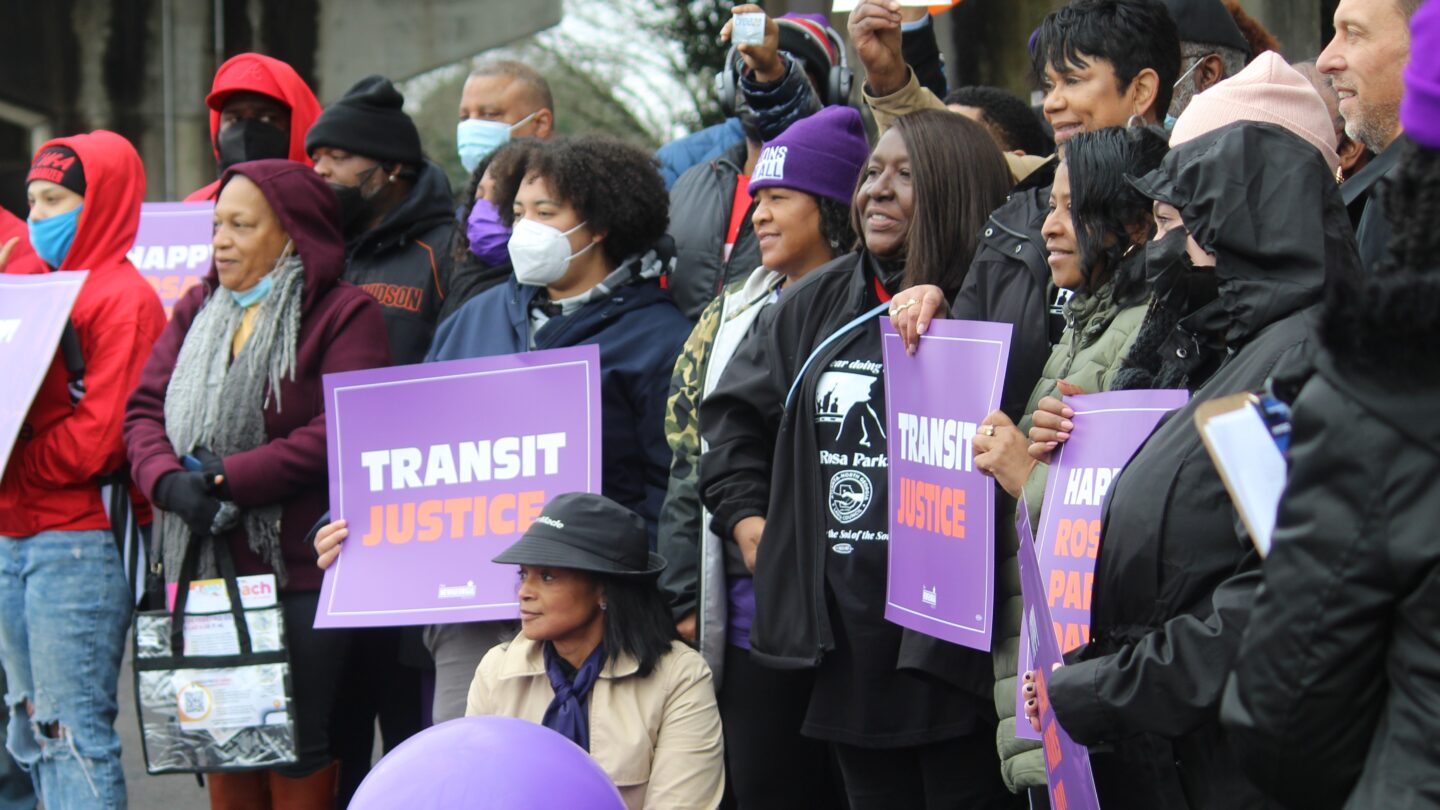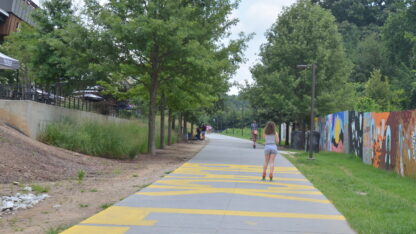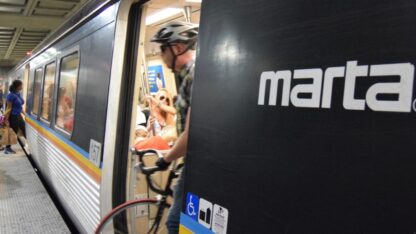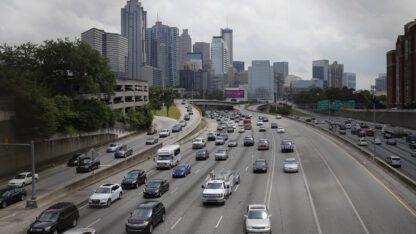John Taylor remembers standing on a street corner two decades ago, not far from the West End MARTA station, demonstrating for more public transit options — or as he calls it, a “good, fair ride”
“Can we please make sure that 20 years from now we’re talking about how we have a good, fair ride,” Taylor said.
Taylor is with the non-profit group Black Male Initiative. He was among dozens who rallied recently to mark Transit Equity Day – observed each year on the birthday of Civil Rights pioneer Rosa Parks.
Friday’s march was organized by the Atlanta North Georgia Labor Council. For many Black residents in metro Atlanta, access to reliable transportation remains a barrier to employment.
For some, it takes hours to get across town on a bus. And for many outside the perimeter, public transportation is non-existent.
This disparity is leading to demands for more transit equity.
“We need to figure out how to provide transportation to everyone who needs a job,” said Taylor. “That’s what transportation equity is all about.”
Taylor and many others are calling for upgrades to MARTA inside the perimeter and the expansion of public transportation beyond it. They want residents of Clayton, South Dekalb, Gwinnett and Cobb to have an efficient way to commute to the city for work.
Rita Scott, who chairs MARTA’s board of directors says the agency continues exploring ways to make that happen. She says public feedback is important in helping to extend service to underserved areas and populations – including older residents who no longer drive.
“Public transit is the key to every community thriving. So that’s what we plan to do long-term, is to make sure that everyone that needs access to public transit, has it,” said Scott.
Scott and others are hopeful that newly available federal dollars will help MARTA continue to expand.
Atlanta’s new city council president Doug Shipman says the council can serve as a “bridge between communities and what they need in transit.”
In May, voters in the city will be asked to approve more than $750 million in spending to upgrade city sidewalks, roads and bridges, among other infrastructure projects.
Shipman also says federal money can help inside the city too, including the introduction of a fleet of electric buses.
“I think those infrastructure dollars will really allow us to make some of those capital investments that really can change the way that transit works in Atlanta,” said Shipman.
Georgia U.S. Rep. Hank Johnson is pressing state and federal transportation leaders to re-think plans to expand the 285 and I-20 interchange east of Atlanta, citing both equity and environmental concerns.
He favors extending heavy rail service to the area instead.
“I am concerned that the project reflects an outdated road-centric approach,” Rep. Johnson wrote to Georgia Department of Transportation commissioner Russell McMurry “[It] focuses solely on reducing traffic congestion through new roadway capacity rather than improving overall mobility for area residents.”









